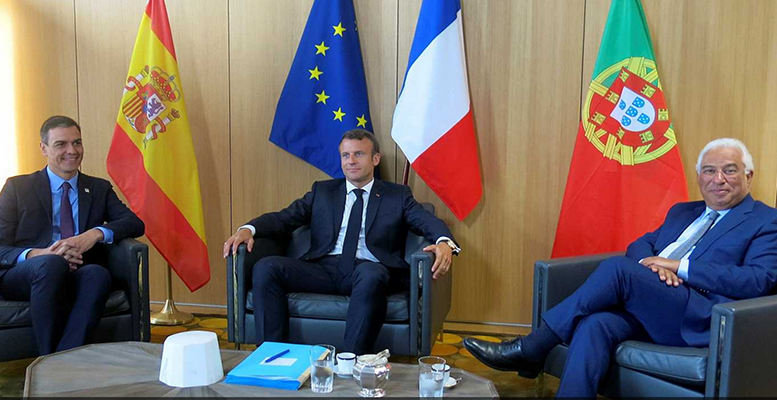Pedro Sánchez, Emmanuel Macron and António Costa (who, for Portugal, has also been part of the dialogue) have decided to discard the gas pipeline that had been proposed through the Pyrenees, the MidCat.
They have agreed that a new project, BarMar, will replace it. This is an underwater gas (or hydro-product) pipeline that will link Barcelona and Marseille via the Mediterranean Sea bed. This solution, however, has its cost: the price of the infrastructure will be higher and its construction will take more years.
The Government insists on calling the future pipeline a hydro-product because its main purpose will be to transport green hydrogen, although initially it will be for natural gas. In this way, it will also be given the green label and form part of the European economy’s decarbonisation plans.
With this project, France will save the 3 billion euros that it would have had to contribute to put MidCat into operation. These funds would have been necessary to improve its gas network and thus be able to transport the fuel that would arrive from Spain.
The underwater hydro-product arriving in Marseille will be connected directly to the French gas network. No additional infrastructures will be necessary, as would have been the case with MidCat. The new pipeline between Barcelona and Marseilles will be 360 kilometres long and will take between four and five years to come into operation.





